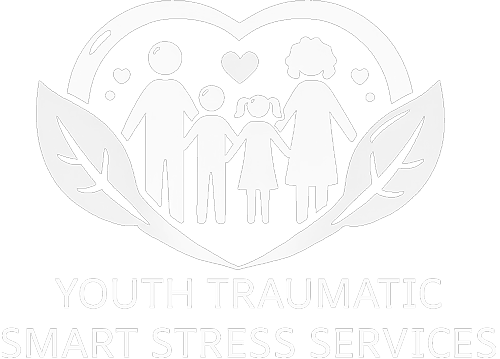Grief-enhanced Trauma-informed Care process(GTC)Grief-enhanced Trauma-informed Care process(GTC)
Other Markers For Traumatic Stress And Grief- Vascular Markers
Traumatic stress and grief are not only psychological phenomena but also involve profound
physiological changes, particularly within the cardiovascular and vascular systems.
Dysregulation of vascular markers is a key aspect of the psychophysiological response, driven by
the interaction between the nervous, endocrine, and immune systems.
Main Key Points
Vascular and Endocrine System:
Chronic stress hormones like cortisol and adrenaline harm blood vessels, raise blood pressure, and increase inflammation. Over time, this leads to higher risks of heart disease and other cardiovascular problems.
Stress and Autonomic Imbalance:
PTSD disrupts the body’s stress-regulating systems, contributing to irregular heart rhythms and reduced cardiovascular resilience.
Immune and Metabolic Impacts:
PTSD can weaken the immune system and make it more vulnerable. It also increases the risk of insulin resistance, type 2 diabetes, and weight gain.
Sleep and Health:
Sleep problems worsen physical health by contributing to high blood pressure, poor blood sugar regulation, and fatigue, which hinders healthy lifestyle choices.
Behavioral Risks:
Unhealthy coping mechanisms like smoking, alcohol use, and physical inactivity compound cardiovascular risks.
PTSD and chronic stress significantly impact overall health, with long-term effects that extend far beyond emotional well-being. Physically, PTSD activates the body’s “fight or flight” response, leading to the release of stress hormones like adrenaline and cortisol. While these hormones are essential for short-term survival, their chronic elevation due to PTSD creates harmful effects over time. These include persistent high blood pressure, increased inflammation, and impaired function of the blood vessels, all of which heighten the risk of developing cardiovascular diseases like heart attacks, strokes, and heart failure.
PTSD also affects the autonomic nervous system, disrupting the balance between the systems that regulate stress and relaxation. This imbalance contributes to issues such as irregular heartbeats, poor blood flow, and reduced resilience of the cardiovascular system. The physical effects of PTSD go beyond the nervous and cardiovascular systems.
Chronic stress also impairs the immune system, making the body more vulnerable to infections and chronic inflammatory conditions. It also affects metabolic health, increasing the likelihood of insulin resistance, type 2 diabetes, and weight gain, which is a known risk factor for heart disease. Sleep disruptions, common in individuals with PTSD, exacerbate these physical issues by promoting hypertension, poor blood sugar control, and fatigue, which can interfere with healthy lifestyle habits.
Behavioral factors tied to PTSD further amplify its physical impact. People with PTSD may turn to smoking, alcohol, or unhealthy eating as coping mechanisms, increasing cardiovascular risks. Physical inactivity, often linked to avoidance symptoms or depression associated with PTSD, can weaken the heart and blood vessels, compounding the risks…
References
1. Mehta, P. K., et al. (2021). Vascular dysfunction in chronic stress. Circulation Research.
2. Broadley, A. J., et al. (2005). Nitric oxide and stress-induced endothelial dysfunction. Clinical Science.
3. Spitzer, C., et al. (2022). CRP and grief: Implications for vascular health. Journal of Psychosomatic Research.
4. Barton, D. A., et al. (2018). IL-6 in traumatic stress and grief. Psychoneuroendocrinology.
5. Streider, R., et al. (2019). BPV during grief and cardiovascular events. Hypertension Journal.
6. Buckley, T., et al. (2014). Platelet activation in bereavement. Heart Journal.
7. Grenon, S. M., et al. (2016). Endothelial dysfunction in PTSD. Vascular Medicine.









